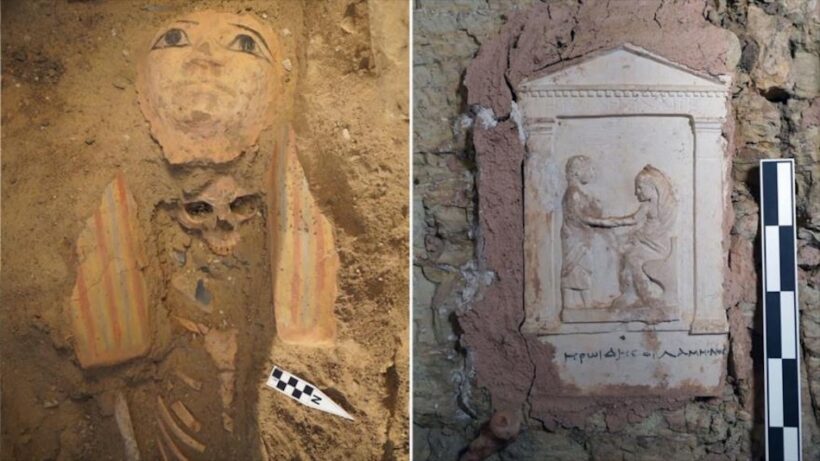Archaeologists in Egypt have uncovered several tombs containing mummy masks and a figure of the local god of silence.
The new find was made in a joint mission by Waseda University (Japan) and the Egyptian Supreme Council of Antiquities.
Scientists have uncovered a rock-cut tomb and a wealth of artefacts spanning different historical periods during their current season of excavations at the Saqqara necropolis, functional from the 1st Dynasty to the Christian era.
In addition, archaeologists have uncovered several tombs dating from around 1800 to 4800 years ago, i.e. from different dynasties of ancient Egypt, the Ahram Online newspaper reported.
The finds include colourful mummy masks and even the statuette of Harpocrates, the god of silence, Egypt’s Ministry of Tourism and Antiquities said on social media.
Archaeologists find dozens of tombs of Egyptian pharaohs
An archaeological mission has discovered more than 80 tombs in the province of Sohag, some 500 kilometres south of Egypt’s capital Cairo.
The mummy masks, which would have been placed over the dead, probably date from the Roman period (29 BC to 641 AD), said Nozomu Kawai, director of the Institute for the Study of Ancient Civilisations and Cultural Resources at Kanazawa University, who led the excavations.
Another find is a stele, or carved stone slab, whose inscription says it belongs to a man called ‘Heroides’.
Kawai has also stated that his team had found part of the burials in northern Saqqara in 2019, but excavations were halted due to the pandemic and research did not resume until 2023.
Saqqara is the main necropolis of the city of Memphis, located about 30km south of Cairo and 22km southeast of the Pyramids of Giza, which was used for burials until the Christian era.






